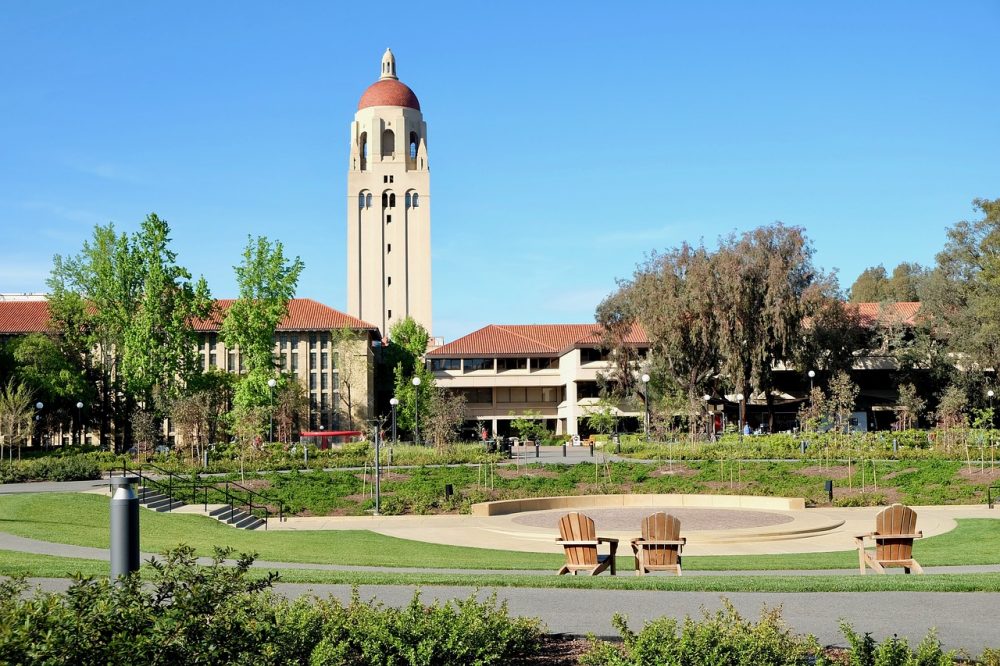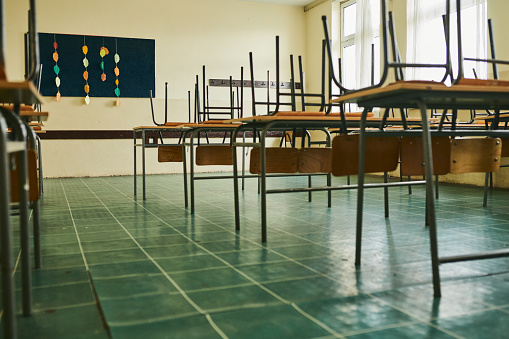 View Winners →
View Winners → March College Search Guide

Stanford University. | Courtesy photo
The road to college
By May S. Ruiz
This month marks a year since the coronavirus pandemic became widespread and lockdown began. I wish I could say that we might see some light at the end of the tunnel but, sadly, that could still be months away. The U.S. has surpassed 500,000 COVID-19 deaths, more than in two world wars and the Vietnam war combined. While there are now three approved vaccines to help fight the coronavirus, there is very limited supply and rollout is being staggered. The latest vaccination update issued by the L.A. County Public Health Department has listed the sectors eligible for inoculation beginning March 1, they include workers in food and agriculture, education and childcare, and emergency services and first responders.
At the same time, government officials and school districts are announcing plans to reopen school campuses in early April. However, teachers’ unions are refusing to let their members go back to classrooms until they have been vaccinated. But private schools in California and the San Gabriel Valley have found ways to ensure their teachers’ and students’ safety and are now open for in-person learning. It only shows that the children who are more adversely affected by remote learning — those in low-income and racially diverse households — and who would most benefit from a return to classrooms, are not being served.
Inequity in access to education goes all the way to the college level and first came into the spotlight during the spring of 2019’s bribery scandal. And now the pandemic has exposed a trend in college admissions. According to the New York Times’ education briefing, selective schools — including California’s UC system and Penn State — saw double-digit surges in applications due to standardized test scores being waived this admissions cycle. Harvard University had a record-setting 42% increase and the entire Ivy League had to extend its notification by a week to give admissions officers time to read and process applications.
On the other hand, many state schools and small private colleges suffered double-digit drops in applications and enrollments. Many institutions outside the top-tier have been struggling for years and the pandemic just made it worse. The N.Y. Times report further said American colleges and universities have endured losses of more than $120 billion and a few have shut down permanently. The institutions still operating often have to make up the difference by cutting services and programs that provide the tools, resources, and support which many low-income and first-generation students need to complete their degrees.
But let me get back to the purpose of this college search guide. If your children are now attending in-person classes, you must be so relieved after a year of practically having to home-school them. They might have to play catch-up, though. Whether your kids are still remote-learning or on campus, there are several tutoring services available if they require help with school work. Find one which offers options that fit your children’s specific need and your family’s budget. A company called Mundo Academy provides excellent tutoring services in the Pasadena and San Gabriel Valley area. Likewise, some high school and college students have created free tutoring services and learning platforms to help children during the coronavirus pandemic. Two of these organizations include Sailors Learning and Wave Learning Festival.
If your children are still distance-learning, you must be exhausted balancing home-schooling and working. Please reach out for assistance. The CDC has put together a resource kit for parents, divided by age group, to help them ensure their children’s well-being. The site also has links to other resources that cover various concerns. Another CDC webpage is dedicated to helping parents manage stress during the coronavirus pandemic.

FRESHMAN
Your children should have all their grades on track. They need to concentrate on maintaining good study habits now to be better equipped to handle the rigors of the workload in the coming years. If they haven’t been reading much, they should seriously consider taking up reading as a hobby during spring break to help them increase their vocabulary — it will come in handy when they write all the supplemental essays many universities require.
It’s also a good time for your children to consult their class dean regarding summer activities – academic enrichment programs, volunteer work, or part-time employment. College admissions officers are looking for students who explored their passions while getting good grades.
Admissions officers will not expect your children to have extra-curricular activities during the coronavirus pandemic. However, they will be interested to know how students spent their time outside of remote learning. Encourage your children to find virtual volunteer work or earn online certificates to put on their curriculum vitae. Hopefully, this time next year we’ll have some normalcy in our lives and students can resume some of the activities they have put on hold.
SOPHOMORE
Tenth graders who are taking AP courses need to register for the AP exams administered in May. While there is a slew of small independent tutoring schools offering courses to prepare for the AP tests, some children do not need to take on this additional burden on their already busy schedules. Your children have enough on their plate with the intensive homework associated with an advanced placement course. That said, your kids will still have to show competence on the AP exams as all scores are submitted to the College Board; all the colleges to which your children apply will see the AP scores.

JUNIOR
Spring break is usually the time when juniors visit various campuses. Years before the pandemic, my daughter’s school had an organized tour and students had a prepared college visit checklist with a page or several pages allotted for each school. They had to write their overall impressions.
In-person college visits may not be available during the pandemic so make sure you and your children do a virtual tour or a webinar. Many universities offer a live virtual tour where someone takes you around the campus on FaceTime or Zoom. There’s usually an admissions officer on hand to answer questions. And, as in pre-pandemic years, you and your children need to make an appointment to attend the tour.
Even when tours are conducted virtually, you can still ask some of the questions you normally would during an in-person visit. Here are a few examples: What is the advising system for freshmen? Are there opportunities for independent/study abroad? Is there guaranteed housing for four years? What are the dining options? What safety measures and precautions are offered by the school during the pandemic?
Especially during the pandemic, it’s advisable to arrange to speak with a current student about campus life. Here are some questions to ask: Do students stay on campus or do they leave on weekends? Are students practicing healthy campus lifestyles, like limiting parties? Even before the pandemic, these parties led to excessive drinking and wild behavior; these gatherings could be super spreaders of COVID-19.
One major concern for parents and children should be security on campus (Can outsiders gain access to the library, the fitness center or student union? Are there video cameras around the school periphery?). Of course, the most serious threat to students’ well-being may actually be within the confines of the institution. This topic has become part of the national conversation and some universities are addressing the topic up front. I, personally, would want to know if officials have safeguards in place to prevent such crime from occurring. Do administrators disclose information about it or do they hide and blur the facts? What consequences does the school impose on perpetrators?
SENIOR
You and your children should research all scholarships and grants available to them. Many colleges offer merit scholarships to applicants with excellent academic records to motivate them to matriculate. The package usually includes the full cost of tuition and fees and may also cover room and board.
Universities also extend need-based grants to applicants who demonstrate a financial hardship. These reduce the cost of a college education and do not need to be repaid. Your children should complete the Federal Application for Federal Student Aid. Other schools may also require a college-specific financial aid application.
Some useful websites to help you get started in your research include: CollegeXpress; Fastweb; National Merit Scholarship Corporation; Scholarships.com; Scholarships360; and Student Aid on the Web.
As I expounded on last month, some colleges will be sending out decision letters sometime in March or April. Your children should keep their wits about them as they await word from the colleges they applied to.
After the marathon they finished, your children may be quite restless and anxious to know if they have been accepted to their school of choice. Remind them to use this quiet time productively by keeping their focus on academics and their grades. They should still engage in other worthwhile activities like arts.
Tell your children that they may be getting letters of rejection from some schools. While you might be more disappointed than your son or daughter, avoid showing it as that sends the wrong message. Not being accepted to their first choice isn’t the end of the world. In fact, while it may not seem like it at first, that rejection usually turns out to be a blessing in disguise — in most cases, they end up in the school that is the right fit for them.











































































































